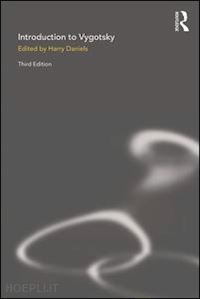Introduction:tothe third edition 1. Minick, N.J. (1987) The development of Vygotsky's thought: An introduction to Thinking and Speech. New York: Plenum. (edited and translated by N. Minick). pp17-35 2. Wertsch, J. V. (2007) ‘Mediation’, in H. Daniels, M. Cole and J. V. Wertsch (eds) The Cambridge Companion to Vygotsky. New York: Cambridge University Press, pp. 178–92 3. Cole, M. (1996) Putting Culture in the Middle Chapter 5 in Cole, M. (1996) Cultural Psychology: A once and future discipline, Cambridge Mass: Harvard University Press pp. 116 - 145 4. Engeström, Y., & Sannino, A. (2010). Studies of expansive learning: Foundations, findings and future challenges. Educational Research Review, 5(1), 1-24 5. Sawyer, RK (2002). Unresolved tensions in sociocultural theory: Analogies with contemporary sociological debates. Culture & Psychology, 8(3), 283-305 6.Mäkitalo, A., & Säljö, R. (2002). Talk in institutional context and institutional context in talk: Categories as situated practices. Text, 22(1), 57-82 7. Edwards, A. (2001). Researching pedagogy: a sociocultural agenda. Pedagogy, Culture and Society, 9(2), 161-186 8. Hedegaard, M. (2014). The significance of demands and motives across practices in children's learning and development: An analysis of learning in home and school. Learning, Culture and Social Interaction, 3(3), 188-194 9. Hutchins, E. (2010). Cognitive ecology. Topics in Cognitive Science, 2(4), 705-715 10.Derry, J. (2004). The unity of intellect and will: Vygotsky and Spinoza. Educational Review, 56(2), 113-12011. Smagorinsky, P. (2011). Vygotsky's stage theory: The psychology of art and the actor under the direction of perezhivanie. Mind, Culture, and Activity, 18(4), 319-341 12. Stetsenko, A. (2009). Teaching–learning and development as activist projects of historical becoming: expanding Vygotsky's approach to pedagogy. Pedagogies: An International Journal, 5(1), 6-16.











